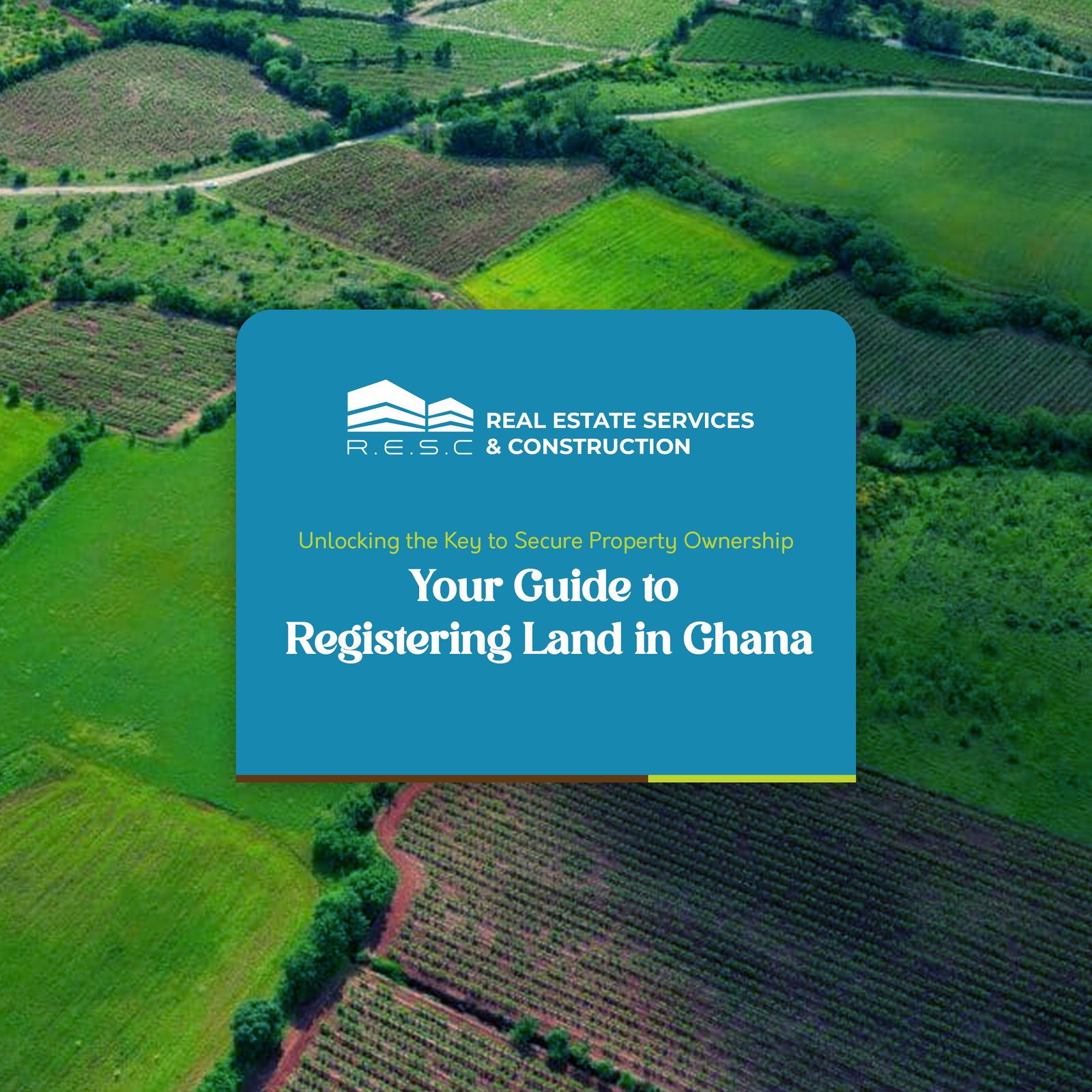Unlocking the Key to Secure Property Ownership: Your Guide to Registering Land in Ghana
March 19, 2024 3 Minutes Read

Welcome to this week's newsletter, where we'll embark on a comprehensive journey into the essential process of registering land in Ghana. Whether you're a seasoned investor or a first-time landowner, understanding the intricacies of land registration is crucial for securing your property rights and ensuring peace of mind.
Exploring the Legal Landscape
The first step in registering land in Ghana is to familiarize yourself with the legal procedures involved. Land registration in Ghana is governed by various laws and regulations, including the Land Registration Act, 1962 (Act 122), and the Land Title Registration Law, 1986 (PNDCL 152). Understanding these legal frameworks is essential for navigating the registration process effectively.
Step 1: Application Submission: The land registration process begins with the submission of an application to the relevant land registry office. The application should include detailed information about the land, such as its location, size, boundaries, and any existing encumbrances. It's important to ensure that the application is accurate and complete to avoid delays or complications later in the process.
Step 2: Due Diligence and Verification: Once the application is submitted, the land registry office will conduct a thorough due diligence process to verify the information provided. This may involve conducting site visits, reviewing existing land records, and resolving any discrepancies or conflicting claims. It's crucial to cooperate fully with the land registry office during this stage to expedite the process and address any issues promptly.
Step 3: Publication of Notice: After the due diligence process is complete, a notice of the application will be published in the local gazette and newspapers to inform the public of the pending registration. This allows interested parties to raise any objections or claims against the registration within a specified period. It's important to monitor the publication and address any objections or claims in a timely manner to prevent delays.
Step 4: Issuance of Land Title Certificate: Once the publication period expires and any objections or claims are resolved, the land registry office will issue a land title certificate to the applicant. This certificate serves as conclusive proof of ownership and provides legal protection against any future disputes or encroachments. It's essential to safeguard the land title certificate and keep it in a secure place.
Navigating the Ghanaian System with Confidence
Navigating the Ghanaian land registration system can be complex, but with the right guidance and support, you can ensure a smooth and successful registration process. At RESC, our team of experts is dedicated to providing comprehensive assistance and guidance at every step of the journey. From preparing and submitting your application to resolving any issues or objections that may arise, we're here to support you and help you secure your piece of Ghana's vibrant real estate landscape.
Ready to embark on your land registration journey? Reach out to our team today to learn more about our land registration services and how we can assist you in securing your property rights.
Wishing you success and peace of mind in your land registration endeavors!
Warm regards,
Real Estate Insider | RESC
P.S. Have questions or ready to embark on your real estate journey? Reach out to us at +233200659940 or drop us a line at info@rescgh.com. We can't wait to hear from you!
Copyright © 2024 RESC. All rights reserved.
Address: Crown Court Unit 1, Labone-Accra, Ghana
Phone: +233200659940 | Email: info@rescgh.com
Website: www.rescgh.com
